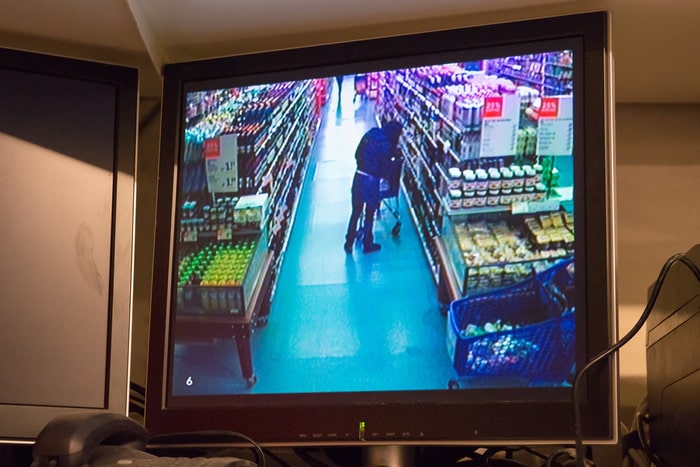
- August 4, 2023
- |security guard company
- | 0
Safeguarding Success –
In today’s competitive business landscape, protecting your assets and minimizing losses is a crucial aspect of sustaining profitability and growth. Loss prevention strategies play a pivotal role in ensuring that businesses can withstand the challenges posed by internal and external threats. As a leading authority in loss prevention, XPressGuards is here to provide valuable insights on how businesses can implement effective loss prevention strategies to secure their success.
1. Conduct Comprehensive Risk Assessment
Before crafting a robust loss prevention strategy, businesses must first identify potential vulnerabilities and risks. Conduct a thorough risk assessment that evaluates all aspects of your operations, including physical premises, inventory management, employee practices, and cybersecurity. This assessment will form the foundation for tailoring your loss prevention measures to address specific weaknesses and threats.
2. Establish Clear Policies and Procedures
Clear and well-defined policies and procedures are essential for guiding employees and stakeholders on acceptable practices and behaviors. Develop a comprehensive code of conduct that covers areas such as inventory handling, cash management, access controls, and response protocols for emergencies. Regularly communicate and reinforce these policies through training sessions and written materials to ensure that everyone is on the same page.
3. Invest in Employee Training
Your workforce is both your first line of defense and a potential source of vulnerabilities. Properly trained employees can help deter theft, identify suspicious activities, and respond effectively to potential security breaches. Provide ongoing training that covers topics such as customer interaction, spotting counterfeit currency, recognizing signs of employee theft, and handling emergency situations.
4. Implement Access Controls
Limiting access to sensitive areas and critical systems is an essential aspect of loss prevention. Utilize technologies such as keycards, biometric scanners, and security codes to restrict access only to authorized personnel. This ensures that only individuals with the appropriate clearance can access areas like stockrooms, data centers, and management offices.
5. Install Surveillance Systems
Modern surveillance systems are a valuable tool for preventing and detecting losses. Strategically place high-resolution cameras throughout your premises, including entrances, exits, sales floors, and storage areas. These systems act as both deterrents and evidence-gathering tools, helping to identify suspicious activities and provide critical information in case of an incident.
6. Embrace Technology
Incorporating technology-driven solutions can significantly enhance your loss prevention efforts. Implement inventory management systems that utilize barcode scanning, RFID tags, and real-time tracking to monitor inventory movement accurately. Utilize point-of-sale (POS) systems with built-in security features to prevent employee fraud and track sales transactions effectively.
7. Establish Robust Inventory Management Practices
Effective inventory management is a cornerstone of loss prevention. Regularly conduct physical inventory counts to ensure that the recorded stock levels match the actual quantities on hand. Implement a “first in, first out” (FIFO) approach for perishable items to prevent spoilage and reduce waste. Utilize inventory tracking software to automate and streamline the monitoring process.
8. Monitor Supplier Relationships
Maintain a close watch on your supplier relationships to prevent potential losses caused by fraud, quality issues, or delivery discrepancies. Conduct due diligence before entering into contracts and establish clear terms regarding product quality, quantity, and delivery schedules. Regularly review supplier performance and consider diversifying your supplier base to minimize risk.
9. Implement Cybersecurity Measures
In today’s digital age, cyber threats pose a significant risk to businesses’ assets and sensitive data. Safeguard your digital operations by implementing strong cybersecurity measures, including firewalls, encryption, regular software updates, and employee training on recognizing phishing attempts and other cyberattacks.
10. Foster a Culture of Accountability
Cultivating a culture of accountability is essential to ensuring that loss prevention strategies are consistently followed. Encourage employees to take ownership of their responsibilities and actively participate in maintaining a secure environment. Recognize and reward individuals who demonstrate exceptional adherence to loss prevention practices.
11. Regular Audits and Reviews
Loss prevention is an ongoing effort that requires continuous evaluation and improvement. Conduct regular audits of your security systems, policies, and procedures to identify areas that need refinement. Analyze incident reports, monitor key performance indicators, and seek feedback from employees to stay proactive in addressing potential vulnerabilities.
12. Collaborate with Experts
Partnering with a professional loss prevention company like XPressGuards can provide businesses with specialized expertise and solutions. These experts can help tailor loss prevention strategies to your specific industry, size, and risk profile, ensuring a comprehensive approach to safeguarding your assets.
Effective loss prevention strategies are essential for businesses looking to protect their investments, maintain profitability, and sustain growth. By combining a proactive mindset, employee training, technological advancements, and strategic partnerships, businesses can significantly reduce the impact of internal and external threats.
Implementing these strategies not only fortifies a company’s financial stability but also fosters a culture of security and responsibility that resonates throughout the organization, ultimately leading to long-term success. As a leader in the field, XPressGuards is committed to supporting businesses in their journey toward implementing comprehensive and effective loss prevention measures. Contact us to learn more.


